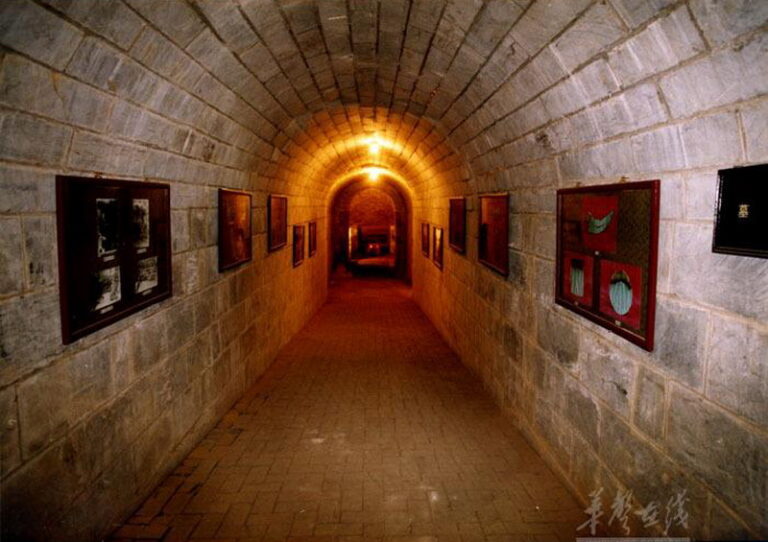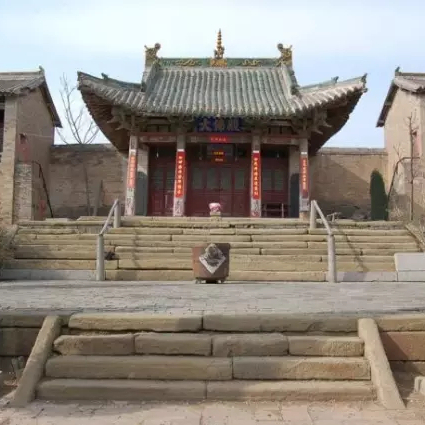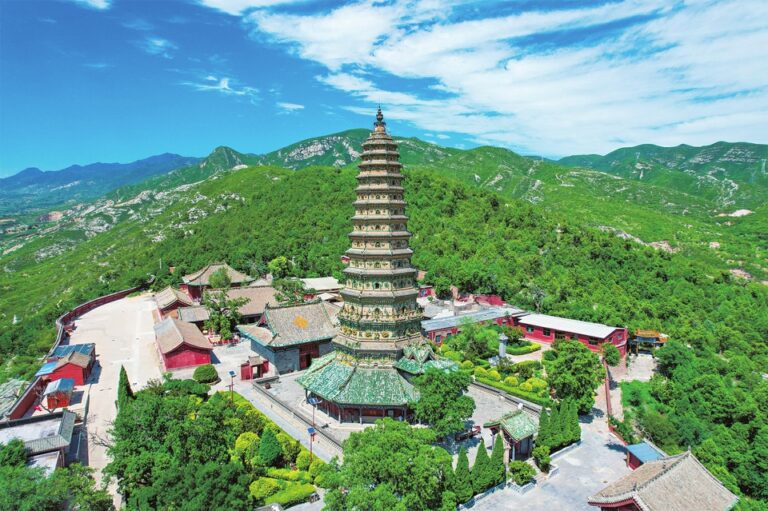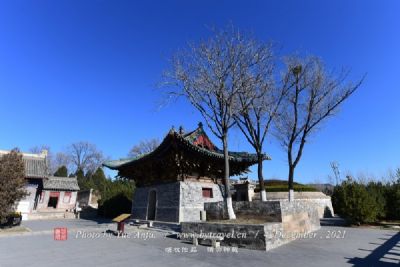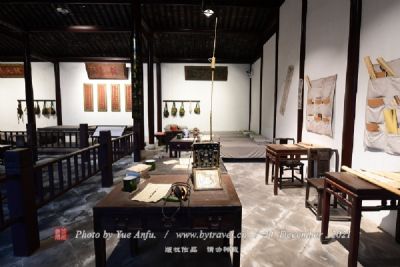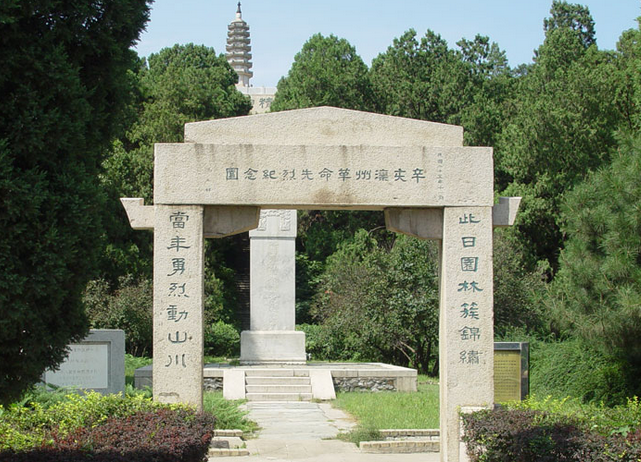Crafting Tradition: Explore the Fenjiu Workshop in Lüliang, Shanxi
An Essential Guide to Visiting Luliang Xinghuacun Fenjiu Workshop
In This Guide
- An Essential Guide to Visiting Luliang Xinghuacun Fenjiu Workshop
- The Rich History of Luliang Xinghuacun Fenjiu Workshop
- Main Highlights: What to See at Luliang Xinghuacun Fenjiu Workshop
- Planning Your Visit: A Practical Guide
- Tickets, Hours, and Booking
- How to Get There
- Local Cuisine and Accommodation
- Frequently Asked Questions
- Final Thoughts on Your Trip
Nestled in the heart of Shanxi province, Luliang Xinghuacun Fenjiu Workshop, or the Xinghua Village Fenjiu Workshop, is a treasure trove for those eager to delve into China’s rich liquor heritage. This enchanting locale not only offers a taste of the famed Fenjiu, a spirit celebrated for its unique aroma and flavor, but also immerses visitors in the cultural tapestry that surrounds this illustrious beverage.
Xinghua Village, steeped in history, is often poetically immortalized by the renowned Tang dynasty poet Du Mu, whose lines evoke the village’s serene beauty and the allure of its fine wines. Here, the air is thick with the sweet scent of fermentation, inviting enthusiasts and novices alike to explore the intricate process of baijiu production, which has been perfected over centuries.
The workshop itself is a living museum, showcasing traditional brewing techniques and offering hands-on experiences for those who wish to craft their own unique blend. As you wander through the beautifully preserved facilities, you’ll gain insight into the meticulous craftsmanship that defines Fenjiu, from the selection of high-quality sorghum to the fermentation and distillation processes that create this beloved spirit.
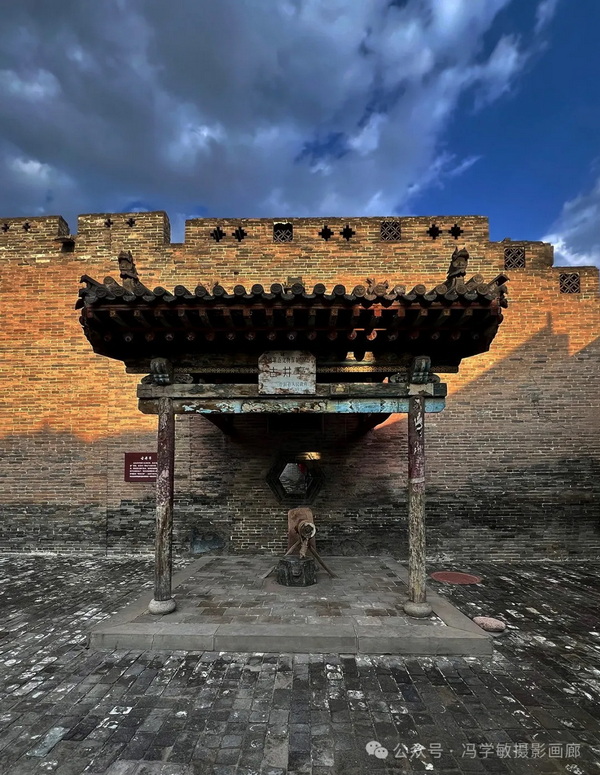
Luliang Xinghuacun Fenjiu Workshop.
Visiting the Luliang Xinghuacun Fenjiu Workshop is more than just a tasting; it’s an invitation to appreciate the artistry and heritage of one of China’s most iconic beverages. Whether you are a passionate connoisseur or simply curious about the world of spirits, this workshop promises an unforgettable journey into the heart of Chinese liquor culture, surrounded by the breathtaking landscapes of Luliang.
The Rich History of Luliang Xinghuacun Fenjiu Workshop
The Luliang Xinghuacun Fenjiu Workshop, nestled in the picturesque Xinghua Village of Fenyang, Shanxi Province, has a rich and storied past that intertwines deeply with the cultural fabric of Chinese liquor production. This historic site is primarily known for its renowned Fenjiu, a traditional Chinese liquor that has been celebrated for over 4,000 years.
The origins of Fenjiu can be traced back to the Northern and Southern Dynasties (420-589 AD), during which it was revered as a royal beverage. The distillation techniques used at the workshop have evolved over centuries, maintaining a commitment to quality that has established Fenjiu as a symbol of Chinese craftsmanship. The workshop itself embodies the traditional methods of liquor production, utilizing locally sourced sorghum and pure spring water from the nearby Fen River, which lends the spirit its distinctive flavor.
Xinghua Village gained prominence in part due to a poignant couplet from the famous Tang dynasty poet Du Mu, who immortalized the village in his poem “Qingming.” The verse, which translates to “During the Qingming Festival, rain falls incessantly; travelers on the road feel utterly forlorn. I ask where a tavern might be found; the shepherd boy points to Xinghua Village,” captures the idyllic essence of the village and its role in the cultural landscape of Chinese alcohol.
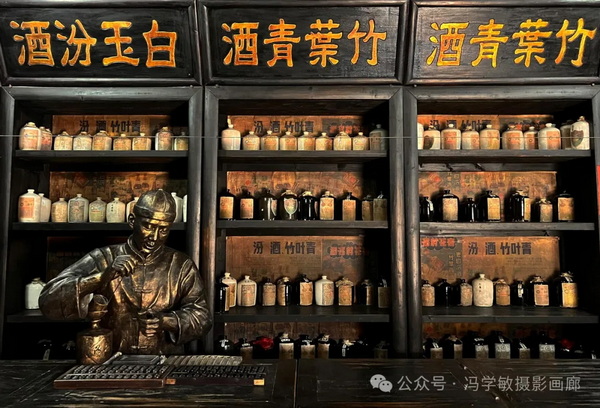
Luliang Xinghuacun Fenjiu Workshop.
In modern times, the Luliang Xinghuacun Fenjiu Workshop has transformed into a cultural heritage site and tourist attraction, recognized as a national intangible cultural heritage. The establishment of the Fenjiu Museum within the workshop allows visitors to explore the history and evolution of Fenjiu production. It houses an impressive collection of artifacts, including ancient brewing tools and documents that chronicle the distillery’s long-standing legacy.
The workshop not only focuses on preserving historical techniques but also emphasizes eco-friendly practices in its operations. This commitment to sustainability reflects a broader trend in the industry, aiming to protect the environment while upholding the time-honored traditions of Chinese liquor making.
Today, travelers flock to the Luliang Xinghuacun Fenjiu Workshop to experience the rich heritage of Fenjiu firsthand. Guided tours provide insights into the traditional brewing methods, allowing visitors to witness the meticulous process from grain to glass. Additionally, tastings of various Fenjiu varieties offer a delightful way to savor the spirit that has captivated generations, making this workshop a vital link between past and present in the world of Chinese spirits.
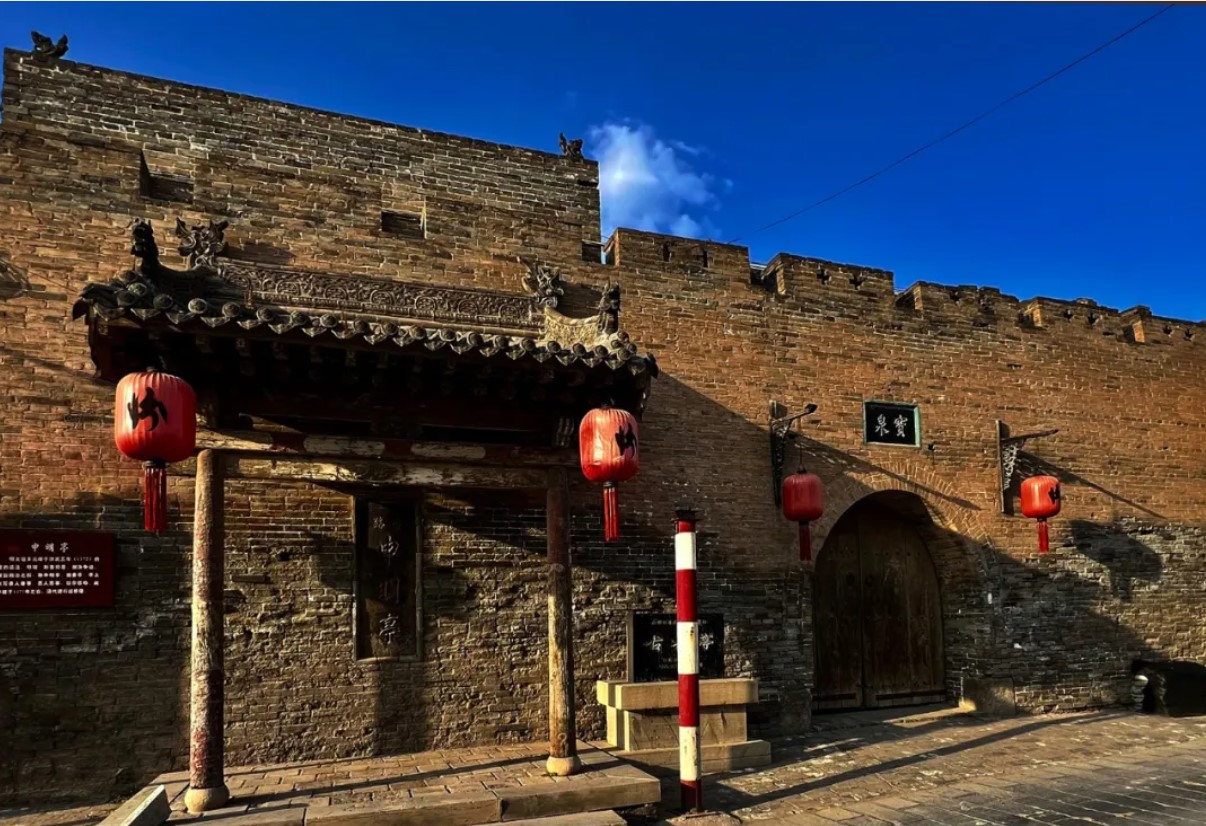
Luliang Xinghuacun Fenjiu Workshop.
Main Highlights: What to See at Luliang Xinghuacun Fenjiu Workshop
Visiting the Luliang Xinghuacun Fenjiu Workshop offers a unique blend of cultural heritage, stunning landscapes, and, of course, the rich tradition of Chinese liquor production. Here are some of the must-see highlights:
-
The Fenjiu Museum: This premier attraction is a treasure trove for enthusiasts of liquor and culture alike. Home to over 3,000 works of art and calligraphy from renowned figures, the museum provides an immersive insight into the history and craft of Fenjiu, one of China’s oldest distilled spirits. Visitors can explore ancient brewing techniques and even taste various aged spirits in the extensive wine cellar.
-
Cultural Experiences: Dive into the fascinating world of liquor-making at the cultural experience center. Here, you can engage in hands-on activities, such as crafting your own bottle of Fenjiu under the guidance of skilled brewers. This interactive experience not only enhances your appreciation of the craft but also provides a sense of accomplishment.
-
Scenic Beauty: The picturesque surroundings of Xinghuacun are especially enchanting during the spring bloom when cherry blossoms and apricot flowers blanket the village. Capture stunning photographs in the vibrant orchards or take leisurely walks along the serene paths, soaking in the intoxicating aroma of blooming flowers mingled with the scent of brewing spirits.
-
Historical Significance: The village’s rich cultural tapestry is woven into the fabric of Chinese history, prominently featured in the poetry of the Tang dynasty poet Du Mu. His famous lines, referring to the village, evoke a sense of nostalgia and connection to the past. Visitors can explore historical landmarks and appreciate the scenic views that inspired generations of poets and artists.
-
Culinary Delights: Complement your visit with a taste of local cuisine, particularly the famed “Eight-Eight Banquet,” which showcases a variety of traditional dishes paired perfectly with Fenjiu. Enjoy an exquisite dining experience that highlights the region’s culinary heritage, ensuring that your journey is as satisfying for your taste buds as it is for your senses.
-
Accessibility: Conveniently located just 15 kilometers from Fenyang city, the workshop is easily reachable by public transport or car, making it a perfect day trip for those exploring the broader Shanxi province.
Whether you’re a connoisseur of fine spirits, a history buff, or simply in search of beautiful landscapes, the Luliang Xinghuacun Fenjiu Workshop is a captivating destination that promises a memorable experience.
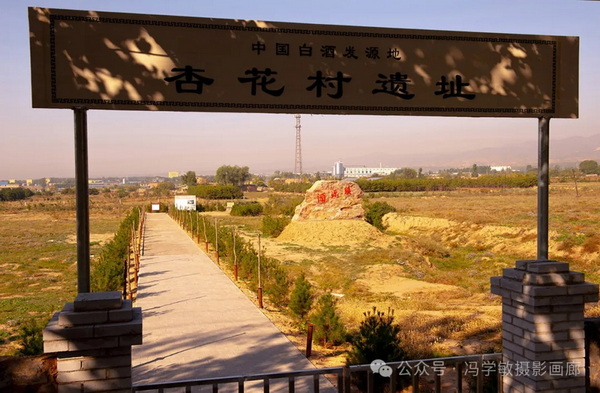
Luliang Xinghuacun Fenjiu Workshop.
Planning Your Visit: A Practical Guide
Practical Guide to Visiting the Luliang Xinghuacun Fenjiu Workshop
Location and Access
The Luliang Xinghuacun Fenjiu Workshop is situated in the heart of Xinghua Village, within Fenyang City, Shanxi Province. This historically rich area is approximately 15 kilometers away from downtown Fenyang and about 90 kilometers from Taiyuan, the provincial capital.
To reach the workshop, visitors can take a train to Fenyang or drive from Taiyuan, which typically takes around 1.5 to 2 hours. Public bus services are also available, providing easy access to the village and surrounding attractions.
Opening Hours and Admission Fees
The workshop and its associated attractions, including the Fenjiu Museum, generally operate from 8:30 AM to 5:30 PM daily. Admission to the village is free; however, there is a nominal fee of 50 yuan for entry to the Fenjiu Museum, which is well worth the cost for a deeper understanding of the region’s rich liquor-making heritage.
Key Attractions
1. Fenjiu Museum: This is a must-visit for anyone interested in Chinese liquor culture. The museum boasts an impressive collection of artifacts, including ancient brewing tools and exquisite artworks related to Fenjiu. Visitors can also learn about the traditional brewing process, which has been perfected over centuries.
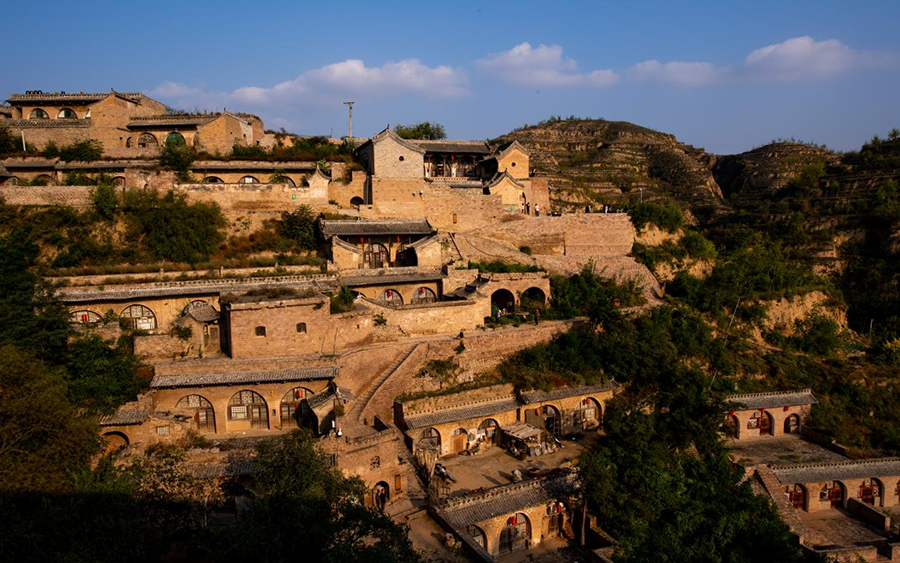
Luliang Xinghuacun Fenjiu Workshop.
-
Historical Brewing Workshops: Experience a guided tour of the traditional brewing process. Here, you will witness the meticulous methods used in crafting Fenjiu, including selecting high-quality sorghum and the unique fermentation techniques that distinguish this liquor.
-
Tasting Sessions: Engage in tasting sessions where you can sample various types of Fenjiu, including special aged varieties. The rich aromas and distinct flavors are an essential part of your visit.
-
Cultural Performances: Depending on the time of year, you might catch local cultural performances that showcase traditional Shanxi music and dance, enriching your experience of the local culture.
Accommodation
For those looking to stay overnight, there are several comfortable options within or near Xinghua Village:
– Fenjiu Cultural Hotel: This hotel is designed to immerse guests in the local liquor culture, featuring themed rooms and on-site dining that showcases regional cuisine paired with local brews.
– Traditional Cave Dwellings: For a unique experience, consider booking a stay in one of the local cave dwellings, which provide a glimpse into historical living conditions while offering modern comforts.
Dining Recommendations
Food in the region is as rich as its liquor. Be sure to try local specialties such as:
– Bowl Steamed Bread (碗托): A traditional dish made with buckwheat noodles and spicy sauce.
– He Lentz (合愣子): A delicious steamed dish made from mashed potatoes wrapped in dough.
– Eight-Eight Banquet (八八宴席): A significant local feast featuring a variety of dishes, perfect for groups.
Transportation Tips
– Public Transport: Fenyang has a free bus service that connects various attractions, including the Fenjiu Workshop.
– Car Rentals: Renting a car can provide more flexibility to explore the scenic landscapes and nearby historical sites at your leisure.
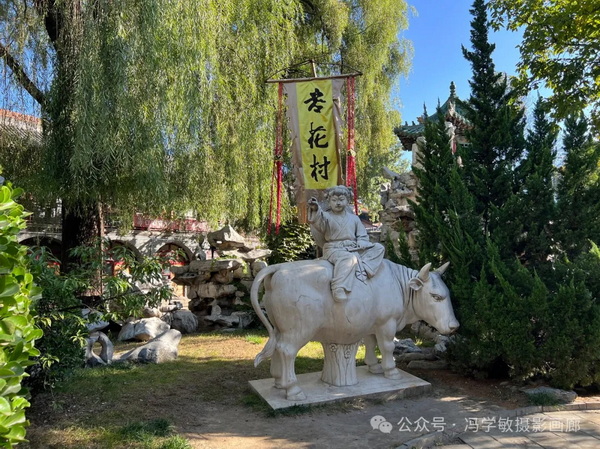
Luliang Xinghuacun Fenjiu Workshop.
Best Time to Visit
The ideal times to visit are during spring (March to May) and autumn (September to November) when the weather is mild, and the scenery is particularly beautiful. The blooming apricot flowers in spring are a spectacular sight, making the village even more picturesque.
Visitor Tips
– Dress Comfortably: Wear comfortable shoes as you will likely spend some time walking through the museum and village.
– Stay Hydrated: Given the potential for warmer temperatures, especially in summer, ensure you drink plenty of water.
– Respect Local Customs: Engage respectfully with local traditions and be mindful of cultural practices, especially during tasting sessions.
With its rich history, cultural depth, and unique offerings, a visit to the Luliang Xinghuacun Fenjiu Workshop promises to be an unforgettable experience. Whether you’re a history buff, a food lover, or simply seeking to explore a unique aspect of Chinese culture, this destination has something to offer everyone.
Tickets, Hours, and Booking
When planning your visit to the Luliang Xinghuacun Fenjiu Workshop, it’s essential to know the ticketing details for an enjoyable experience.
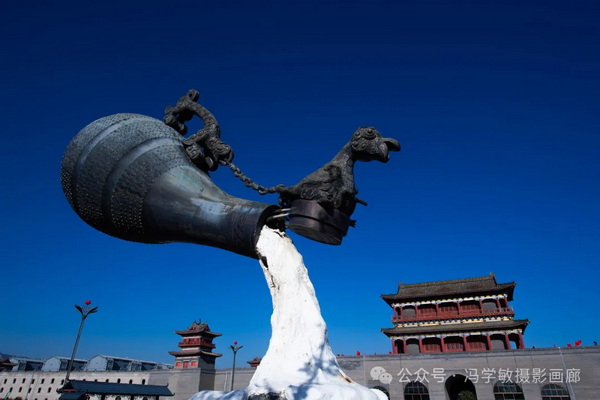
Luliang Xinghuacun Fenjiu Workshop.
Ticket Information
-
Entrance Fee: Visiting the scenic area of Xinghuacun is free of charge. However, if you wish to explore the Fenjiu Museum, a nominal fee of 50 RMB is required.
-
Operating Hours: The workshop and museum are open to visitors from 8:30 AM to 5:30 PM daily. Make sure to plan your visit accordingly to fully enjoy the exhibits and experiences available.
-
Tours and Experiences: For those interested in a deeper dive into the world of Fenjiu, guided tours and tastings may be offered at additional costs. These experiences allow you to learn about the traditional brewing methods and the rich history behind this renowned liquor.
-
Reservations: While walk-ins are typically welcome, it’s advisable to check in advance for any special tours or events, especially during peak seasons or festivals.
-
Payment Methods: Tickets can usually be purchased on-site, but many travelers recommend carrying cash, as not all vendors may accept credit cards.
This information ensures that your visit to the Luliang Xinghuacun Fenjiu Workshop is both memorable and well-organized. Enjoy exploring the fascinating heritage of one of China’s most celebrated liquor-producing regions!
How to Get There
When planning your visit to Luliang Xinghuacun Fenjiu Workshop, convenient transportation options are essential for a smooth journey. Here’s a comprehensive guide to help you navigate your way to this iconic destination in Shanxi province.
Getting There
By Air
The nearest major airport is Taiyuan Wusu International Airport (TYN), located approximately 90 kilometers from Xinghuacun. This airport operates flights from major cities such as Beijing, Shanghai, and Guangzhou. Once you arrive at the airport, you can hire a taxi or book a car service to reach the workshop. The drive typically takes around 1.5 to 2 hours depending on traffic.
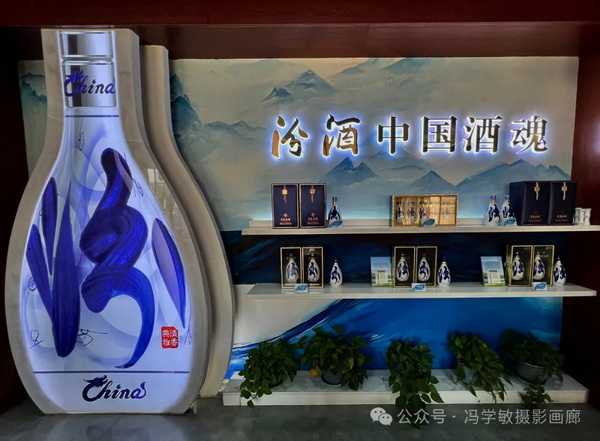
Luliang Xinghuacun Fenjiu Workshop.
By Train
For those traveling by train, Luliang City is accessible via several railway lines. High-speed trains connect major cities like Beijing and Xi’an to Luliang Railway Station. From the station, you can take a taxi to the workshop, which is about a 15-20 minute ride.
By Bus
Long-distance buses also serve the area, with frequent services from Taiyuan and other nearby cities. Buses to Fenyang (the district where Xinghuacun is located) can be taken from Taiyuan’s main bus station. Upon arriving in Fenyang, local taxis or ride-hailing services can take you directly to the workshop.
By Car
Driving is another excellent option for those who prefer flexibility. The journey from Taiyuan to Xinghuacun takes approximately 1.5 hours via the G20 Qingyin Expressway. If you are unfamiliar with the area, consider using a GPS navigation app to help with directions.
Local Transportation
Once in Xinghuacun, the easiest way to explore the vicinity is by taxi or local ride-hailing services. The village is compact, and many attractions, including the Fenjiu Workshop, can be reached quickly. Alternatively, if you’re feeling adventurous, you might also consider renting a bicycle to enjoy the scenic rural landscape at your own pace.
Public Transportation
In Fenyang, public buses are available and are a cost-effective way to navigate the area. However, schedules may vary, and it might be easier to rely on taxis or ride-hailing apps for direct routes to your destinations.
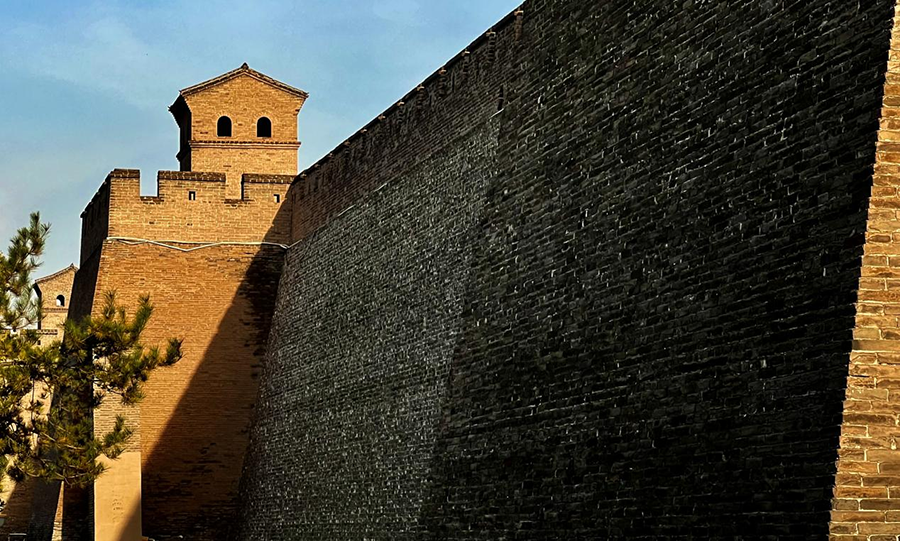
Luliang Xinghuacun Fenjiu Workshop.
Tips for Travelers
- Plan Ahead: During peak tourist seasons, transportation options may be busier than usual. Booking tickets in advance for trains or buses is advisable.
- Language: While many transportation staff may not speak English, having your destination written in Chinese can help ease communication.
- Cash: Although many places accept mobile payments, having some cash on hand is beneficial for small purchases or tips.
- Local Etiquette: Be respectful of local customs and norms, particularly regarding alcohol consumption, as you’ll be visiting a culturally significant site.
By following this guide, you’ll ensure that your visit to Luliang Xinghuacun Fenjiu Workshop is both enjoyable and hassle-free. Safe travels!
Local Cuisine and Accommodation
When visiting the Luliang Xinghuacun Fenjiu Workshop, culinary delights and comfortable accommodations await to enhance your experience. This region, renowned for its rich cultural heritage and exquisite baijiu, offers a feast for both the palate and the senses.
Dining Options
The culinary scene in Xinghuacun is a celebration of local flavors, showcasing traditional Shanxi cuisine that pairs beautifully with the signature Fenjiu liquor. Don’t miss the Wanto (碗托) – a local specialty made from buckwheat noodles served with spicy sauce, perfect for a refreshing appetizer. For a unique twist, try the Helengzi (合愣子), which are steamed potato dumplings that, when dipped in garlic vinegar, provide a delightful tang.
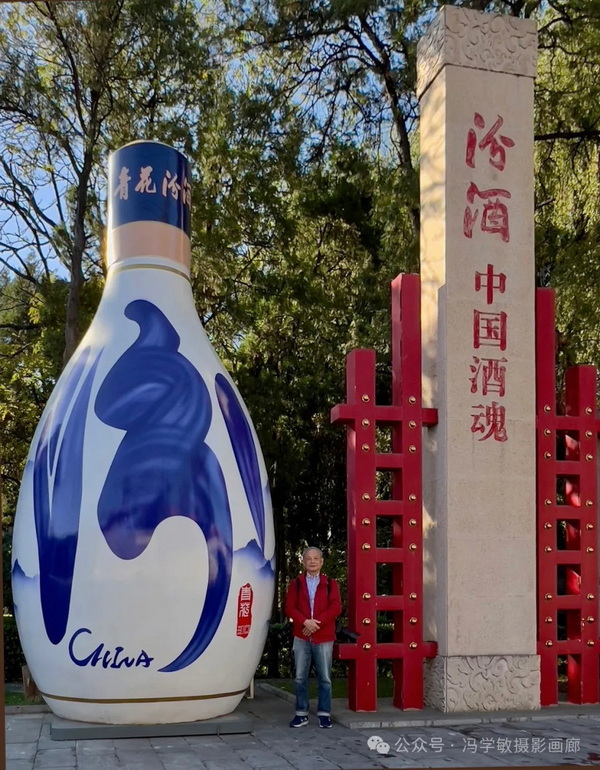
Luliang Xinghuacun Fenjiu Workshop.
For a more formal dining experience, the Fenxing Hotel features a beautifully designed restaurant on the first floor. With 15 private dining rooms, each offering a distinct ambiance, this venue is ideal for family gatherings or business meals. The standout room, aptly named the “Fenjiu Room,” is equipped with an independent bathroom and wardrobe, ensuring a comfortable dining experience. Here, you can savor local dishes, including the esteemed Baba Feast (八八宴席), which consists of eight cold and eight hot dishes, showcasing the culinary artistry of the Fenyang region.
Accommodation
For a truly immersive experience, consider staying at the Fenxing Hotel, situated conveniently along the railway line in Dongbao Village. Recognized as a demonstration enterprise by the China Alcohol Industry Association, this hotel beautifully integrates the theme of liquor culture into its design. The rooms, ranging from 38 to 43 square meters, are spacious and tastefully furnished, featuring comfortable beds and thoughtful amenities such as a safe, complimentary beverages, and a cozy seating area.
Each room is meticulously designed to provide both comfort and functionality, making it perfect for both relaxation and work. The hotel boasts six floors, and every inch is designed with care, offering a homely atmosphere that feels like a sanctuary after a day of exploration.
Conclusion
Whether you indulge in the local culinary offerings or unwind in the comfort of Fenxing Hotel, your visit to the Luliang Xinghuacun Fenjiu Workshop will be enriched by the flavors and hospitality of this unique region. Enjoy the perfect blend of tradition and modernity, making your journey memorable in every way.
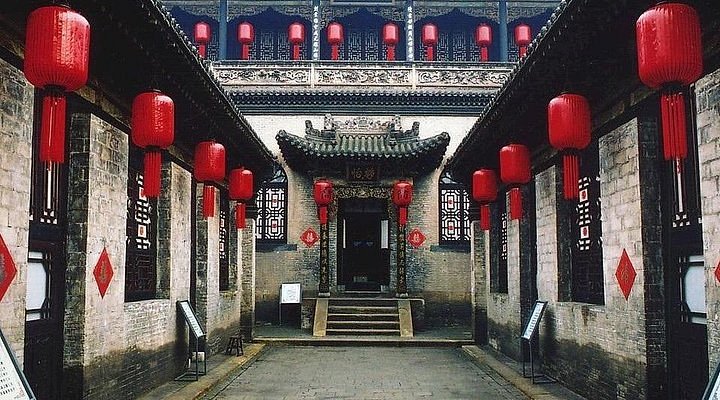
Luliang Xinghuacun Fenjiu Workshop.
Frequently Asked Questions
Frequently Asked Questions about Luliang Xinghuacun Fenjiu Workshop
-
Where is the Luliang Xinghuacun Fenjiu Workshop located?
The Luliang Xinghuacun Fenjiu Workshop is situated in Xinghua Village, approximately 15 kilometers north of Fenyang City, Shanxi Province, China. It is easily accessible from nearby cities like Taiyuan and Pingyao. -
What are the opening hours of the workshop and museum?
The workshop and the associated Fenjiu Museum are open daily from 8:30 AM to 5:30 PM. It’s advisable to check for any special events or closures before your visit. -
Is there an entry fee to visit the workshop and museum?
Visiting the workshop is free; however, there is a nominal fee of 50 CNY for entry to the Fenjiu Museum, where you can explore the history and production process of the famous Fenjiu liquor. -
What kind of experiences can visitors expect at the workshop?
Visitors can enjoy guided tours that showcase the traditional brewing process, explore the history of Fenjiu, and participate in tasting sessions of various aged liquors. Hands-on workshops are also available for those interested in crafting their own personalized bottle of liquor. -
Are there any recommended accommodations nearby?
Yes, there are several options nearby, including the Fenjiu Cultural Hotel, which offers comfortable stays with a focus on local wine culture. Other accommodations include business hotels in Fenyang City, catering to various budgets. -
What transportation options are available to reach the workshop?
The workshop is accessible by car, taxi, or public transportation. Local buses operate from Fenyang City to Xinghua Village, and for a more flexible experience, renting a car is highly recommended. -
What nearby attractions should visitors consider?
In addition to the Fenjiu Workshop, visitors can explore the scenic Pingyao Ancient City, the Yellow River scenic spots, and the historic Qikou Ancient Town. These sites offer a mix of culture, history, and stunning views. -
Can visitors purchase Fenjiu products on-site?
Yes, the workshop features a shop where visitors can purchase a variety of Fenjiu products, including different types of aged liquor and unique souvenirs related to the Fenjiu culture. It’s a great way to take home a taste of this famous drink.
Final Thoughts on Your Trip
Exploring the Luliang Xinghuacun Fenjiu Workshop offers a unique glimpse into the rich tapestry of Chinese liquor culture. Nestled in the picturesque village of Xinghua, this destination is not just about tasting the renowned Fenjiu; it’s a journey through history, craftsmanship, and community spirit. From the enchanting landscapes dotted with blooming apricot trees to the intricate brewing techniques passed down through generations, every moment spent here is imbued with a sense of tradition and authenticity.
Visitors can immerse themselves in the art of fermentation at the Fenjiu Museum, participate in hands-on workshops to create their own unique brews, and savor a variety of exquisite liquor flavors. The experience is further enriched by the hospitality of local establishments that celebrate the region’s culinary specialties, ensuring that every meal is a feast for the senses.
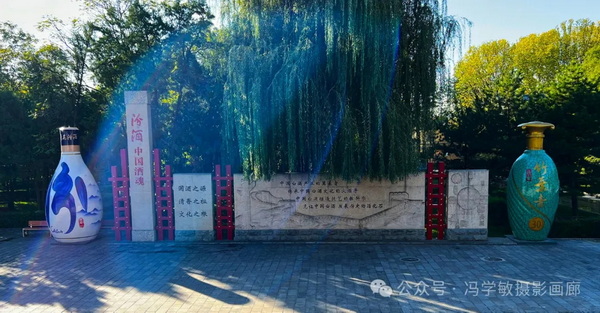
Luliang Xinghuacun Fenjiu Workshop.
As you leave Xinghua Village, the lingering aroma of Fenjiu and the warmth of its people will remain with you, inspiring memories that beckon for a return. Whether you are a connoisseur or a curious traveler, the Luliang Xinghuacun Fenjiu Workshop is more than a destination; it is a celebration of culture, taste, and the enduring legacy of one of China’s finest spirits. Plan your visit and let the journey to this enchanting locale awaken your senses and enrich your understanding of China’s vibrant heritage.
